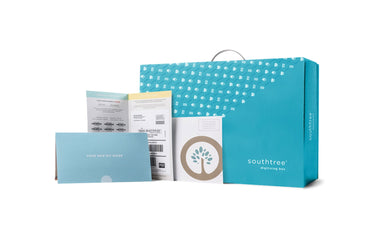Music is a powerful thing. It can soothe a sad soul, ease a broken heart, energize an athlete, create the perfect first kiss, bring up nostalgic feelings, calm our fears and everything in between.
It has a miraculous way of adapting to and enhancing our current mood or transporting us to a completely different emotional state. Which makes one wonder, what’s going on in the brain while those melodic notes are flowing in through our ears?
The pleasure of pressing play
From the moment you press play, music enters our ears and triggers the pleasure centers of our brain responsible for releasing dopamine, a neurotransmitter that creates happiness. It’s a quick rush of positive feelings that peaks with familiar music and favorite songs.
And you know what they say, part of being healthy is being happy. Music exceeds simply making you feel good by actually being good for you. Research shows that listening to music causes upticks in immunity-boosting antibodies and cells that protect against harmful bacteria. In fact, music has been prescribed as a complimentary treatment option for conditions like premature birth, depression – even Parkinson’s disease. But that’s not all.
Music acts as food for the ears, giving our body and brain physical and emotional nourishment, such as:
- Security and comfort for disabled and distressed children by encouraging coordination and communication
- Reduction in stress and anxiety for surgery patients before and after a procedure
- A boost in self-esteem in people of all ages, particularly adolescents and the elderly
- An increased quality of life for adult cancer patients
Rock out to build up
Music, among its many talents, provides a key role in brain development. Those who actually train to play an instrument have displayed an increase in grey matter volume within certain areas of the brain, similar to how physical exercise tones and builds muscle. And when musicians “flex” their brain by playing, research has shown improvement in functions like auditory processing, memory and overall learning comprehension.
Does genre matter?
Breathe a sigh of relief metal heads because many of music’s benefits aren’t limited to a specific genre. Whew! You don’t have to listen to Enya to get those healing powers. The most important thing to note when it comes to reaping the rewards of music is that you isten to familiar and favored music. If you’re hip-hop lover, it’s safe to say polka isn’t going to cut it.
Style of music also plays a role in how your brain digests what you’re listening to. Upbeat tunes with positive energy and lyrics can help prime the body for competition and the mind for comprehension. On the flipside, people looking to concentrate, i.e. read, write or study, should consider instrumental music and calming genres to focus. That’s not to say that AC/DC can’t help you read, it’s just not as likely.
What about the zzz’s?
Okay, so you know what music helps soothe and energize your cognizant mind, but what about your subconscious? Is there a genre that pacifies, helping us sleep better, longer – deeper?
Short answer, yes. Native American, Celtic and soft, stringed instruments are major contributors in helping our slumber hit REM levels. And although it’s not technically music, nature sounds and white noise are also effective snooze pacifiers.













